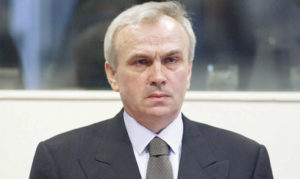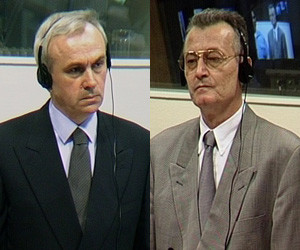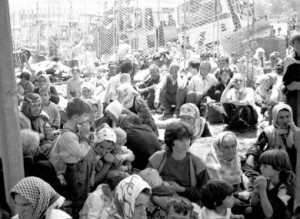
Jovica Stanišić
This week, the Defence for Jovica Stanišić filed a request in front of the Trial Chamber of the Mechanism for International Criminal Tribunals (MICT) to stay the proceedings until the Prosecution respects the principle of finality and the Appeal Chamber’s order for retrial.
On 31 May 2013, the Trial Chamber of the International Criminal Tribunal for the former Yugoslavia (ICTY) acquitted Jovica Stanišić, formerly Deputy Chief and Chief of the State Security Service (SDB) of the Ministry of Interior of the Republic of Serbia, and his co-accused, Franko Simatović, formerly Deputy Chief of the Second Administration of the Serbian SDB and special advisor in the SDB.
In December 2015, the ICTY Appeals Chamber ordered that they be retried on all counts of the indictment.
In September 2016, the Prosecution filed its Pre-Trial Brief and other pre-trial materials.
In its request, the Defence submits that the Prosecution’s approach to the retrial amounts to ‘’such an egregious violation of the Accused’s rights that it is detrimental to the Court’s integrity, contravenes any sense of justice, and makes a fair trial impossible’’. The Defence submits that the Trial Chamber should stay the proceedings until the Prosecution fully respects the res judicata and non bis in idem principles and the order of the Appeals Chamber for a retrial on the previous Indictment without addition or expansion of the counts or charges. Continue reading


